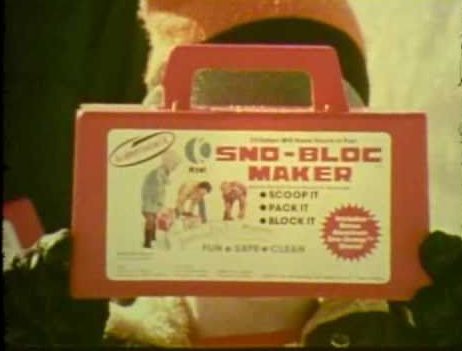When salesmen began traveling by airwaves rather than highways, Philip Kives was the king of the road.
The Canadian-born wheeler and dealer’s company, K-Tel, had a knack for making and marketing products you didn’t really need but wanted nonetheless: Veg-O-Matics, Bonsai Knives, Sno-Bloc Makers. They were designed well, packaged handsomely, priced fairly and they sold, oh how they sold. Perhaps just as impressive as the plastic and metal pieces themselves was the tagline on the ubiquitous ads, “As Seen on TV,” which ingeniously seemed to confer some status upon the odd items while feeding our psychological need for viral, communal participation long before the Internet made instant the gratification of that urge.
The excellent New York Times writer Margalit Fox penned a postmortem of Kives, who just died. An excerpt:
If K-tel’s rhetoric seemed sprung from the lips of an old-time midway barker, there was a reason: As a young man, Mr. Kives had plied that trade, hawking cookware and other goods at county fairs and on the boardwalk of Atlantic City.
By all accounts as skilled a salesman in person as he was en masse, he was one of the last living links between the “Step right up!” pitchman of the early 20th century and his expansive electronic-age heir.
Philip Kives was all but born scrappy, in a Jewish agricultural colony near Oungre, Saskatchewan, on Feb. 12, 1929. His parents, Kiva and the former Lily Weiner, had met and married in Turkey, where they had been settled by the Jewish Colonization Association to avoid persecution in their native Eastern Europe.
In 1926, the organization resettled the Kives family once more — to a farm on the Canadian prairie with neither electricity nor running water.
Amid the Depression, they battled drought, crop failure and insect infestations that seemed to rival the biblical plagues, living for many years on welfare. Philip grew up milking cows, hauling drinking water and earning money by trapping weasels and selling their fur.
In 1957, the young Mr. Kives left the farm for Winnipeg, where he worked as a cabby and a short-order cook. He began selling sewing machines and vacuum cleaners door to door, following the wires strung over newly electrified parts of town to find and court his customers.
He soon became a Paganini of pitchmen, hawking products at fairs throughout Canada and the United States.•
When music was as much held as listened to, the Record Selector and Tape Selector came in handy.

